Exploring The Filipino Identity: A Conversation With VXON’s Franz and ALAMAT’s Jao
Continuing Billboard Philippines‘ P-pop Unite series, VXON’s Franz and ALAMAT’s Jao open up about how P-pop allows them to explore what it means to be Filipino.
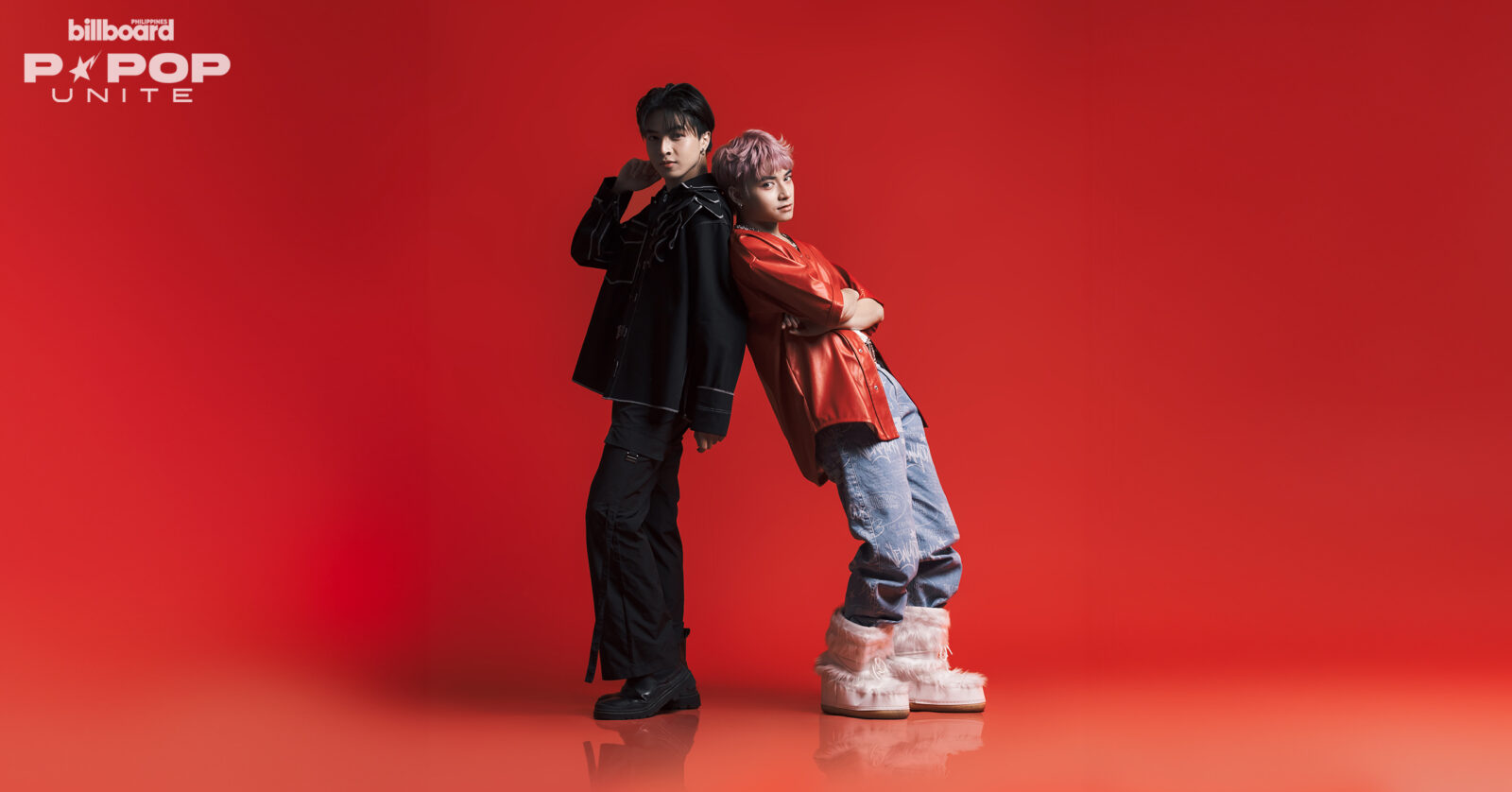
Photographed by Excel Panlaque of KLIQ INC.
Photographed by Excel Panlaque of KLIQ INC.
Music has always been an expression of one’s culture –– and that’s exactly the intention of what P-pop has been doing for the Philippine music scene.
The P-pop movement has taken the international music scene by storm, marking a vibrant resurgence of Filipino music and culture on a global scale. While some critics may argue that the genre borrows heavily from K-pop and Western influences, the essence of P-pop transcends mere imitation. Instead, many artists use this dynamic platform to delve deep into the multifaceted aspects of Filipino identity, weaving cultural narratives into their sound, visuals, and performance styles.
Among the notable groups that embody this fusion of contemporary sound and cultural identity are VXON and ALAMAT — who have not only garnered attention for their catchy tunes and impressive choreography but also for their commitment to infusing their artistry with elements of Filipino heritage. VXON’s music resonates with themes of resilience and pride, while ALAMAT’s unique incorporation of various Philippine languages in their lyrics highlights the country’s rich linguistic diversity. Through their work, these groups showcase how P-pop can serve as a powerful medium for expressing what it means to be Filipino, celebrating traditions while embracing modernity.
In an era where both the genre and cultural exchange are more prevalent than ever, VXON’s Franz and ALAMAT’s Jao share their insights to Billboard Philippines about how P-pop serves as a platform for them to explore the multifaceted nature of what it means to be Filipino –– and how as the genre grows in its reach –– the narrative of Filipino identity is poised to resonate far and wide, creating a lasting impact on the global music landscape.
Billboard Philippines: Can you guys share a bit about your upbringing and how your Filipino heritage has influenced your life and career?
Franz: Having been raised in a family that was really rooted in Filipino culture, I can confidently say that it has significantly influenced my taste in music and art. I learned to sing from my mother, who would often play OPM songs by artists such as Rey Valera, Ogie Alcasid, Regine Velasquez, and Sarah Geronimo –– which is why growing up with that made me like songs that are deeply emotional and ballad-driven. Even when our songs [as VXON] are upbeat and strong, I always make sure to add the element of vulnerability and emotions to them.
Jao: I grew up in Magalang, Pampanga, and ever since I was born, my family spoke to me in Kapampangan. Basically, Pampanga and the Kapampangan language are what feels like home to me. So it makes me so happy how I’m able to share the language and culture through our songs [as ALAMAT].
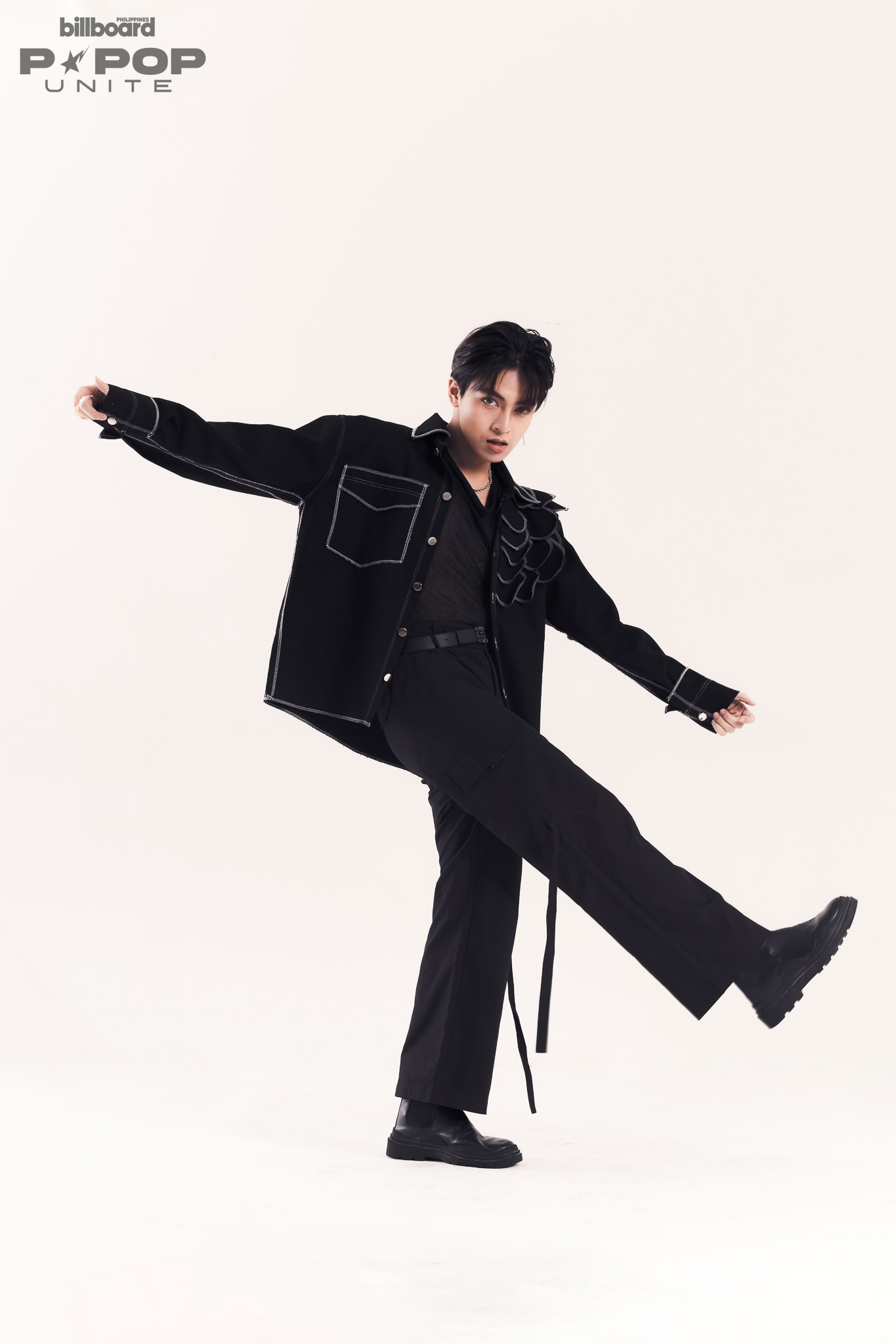
Photographed by Excel Panlaque of KLIQ INC.
What aspects of Filipino culture are most important to you, and how do you integrate these into your music and performances with both ALAMAT and VXON?
Jao: Talent, fashion, language, and literally every beautiful aspect of Filipino Culture are what I consider the most important. ALAMAT always aims to promote our culture in everything that we do especially through our songs, by integrating our different local languages, revisiting Filipino History in music videos, and wearing Filipino textiles and fashionwear whenever we can.
Franz: As a group that consciously integrates “kalye” (street) style music into our discography, we have an emphasis on weaving themes of vulnerability and emotional depth into our songs and artistic expressions, all while maintaining an authentic street Filipino aesthetic.
We understand that Filipinos like being represented in a way that resonates with their own emotional experiences and stories, particularly through art that reflects their daily lives and struggles, and that’s something we like to capture with both our songs and performances. Our group aims to create forms of art that are both genuine and relatable so that we can allow our audience to feel seen in our work.
The goal for us has always been to capture the raw emotions that we can see in the streets and communities around the Philippines, and to translate them into something that speaks to the hearts of the Filipino experience.
How do you feel about representing Filipino culture in the P-pop industry? What responsibilities do you think come with this role?
Franz: I would say being able to represent Filipino culture in P-pop is really important, as it’s what distinguishes and reflects our roots and cultural identity –– both within our country and on a global stage. But that responsibility comes with a certain pressure because we have to consider how we can best represent it while remaining authentic and respectful.
Jao: I feel very proud to represent Filipino culture in P-pop because our culture is undoubtedly beautiful in several ways. There are so many untapped aspects of our culture that many individuals (including Filipinos) have yet to know of. That is why we want to share and represent roots out there as much as we can, though we also have to be responsible about it because it is also important to respect the culture and remain culturally appropriate.
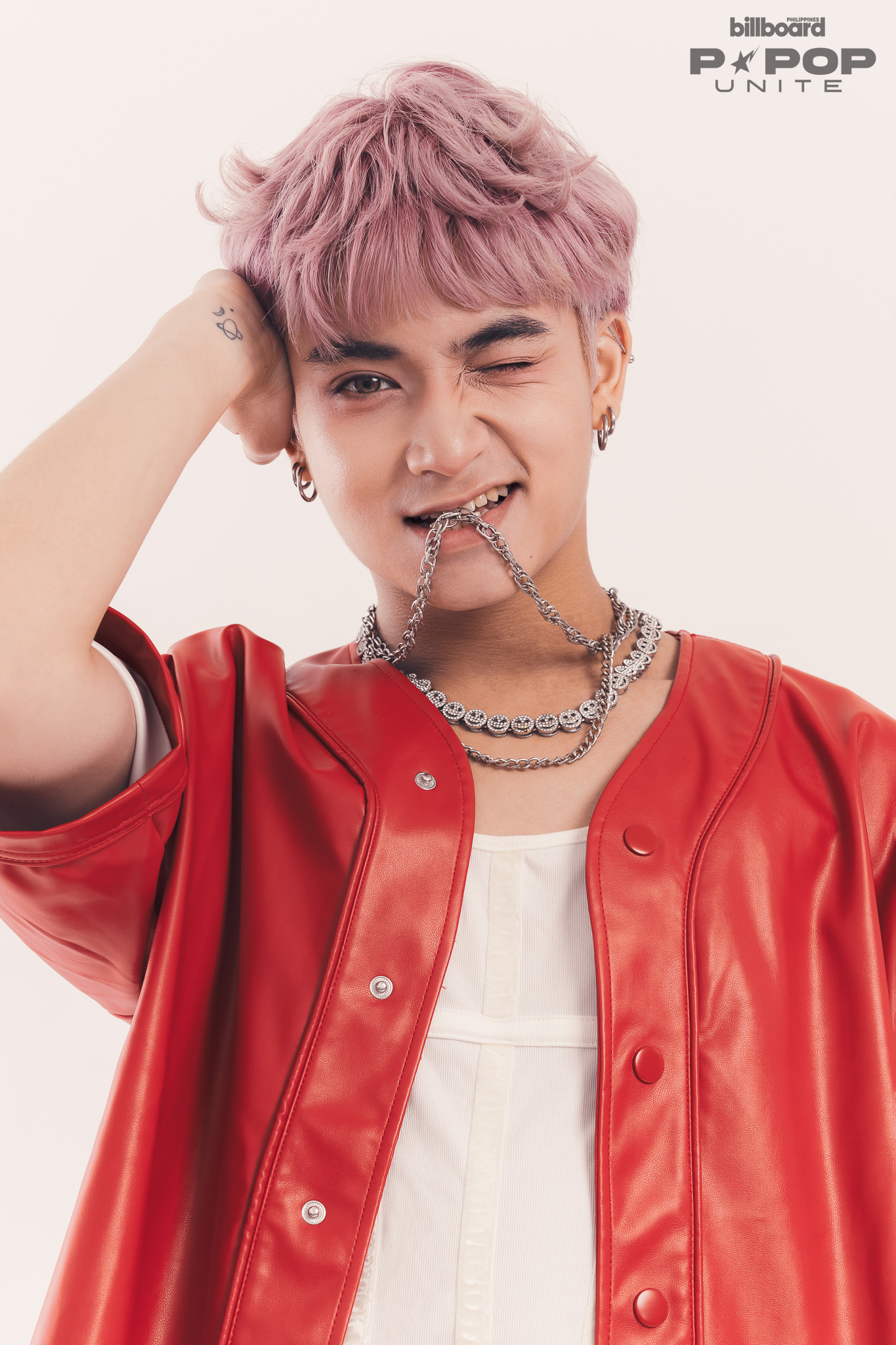
Photographed by Excel Panlaque of KLIQ INC.
In what ways do you incorporate traditional Filipino elements, such as language, dance, or attire, into your group’s music and performances?
Franz: There are several ways to incorporate Filipino culture into P-pop, such as through our song lyrics, choreography inspired by traditional dances, and the integration of Filipino elements in performance styling. In our case [as VXON], we drew inspiration from Filipino culture by incorporating a reference to one of our country’s traditional games, *Larong Pambata*, specifically “Langit Lupa,” in our song “SSP (Saksak Sa Puso).”
Jao: When it comes to our language, since our group comes from different parts of the Philippines, each of our members in ALAMAT has a unique mother tongue. So we try our best to integrate all of our languages in our music. But in our dances, for example: “DAYANG” is in honor of it’s Tausug theme, and the choreography of the song took inspiration from Southern Filipino dances and martial arts such as Pangasik, Kuntaw, Silat, and Tariray.
Also with our song “Day and Night”, both the choruses and a part of the dance break were inspired by Bagobo Tagabawa and Pantomina de Albay. On our song “Maharani,” Singkil and Tinikling were incorporated in the music video and its choreography. But even when it comes to our Fashion, for example; for our debut single, “KBYE,” on one set of our outfits, each member was wearing a piece of their culture from their region. Mine had Kulitan, also known as súlat Kapampángan and Pamagkulit, which is one of the various indigenous suyat writing systems in the Philippines.
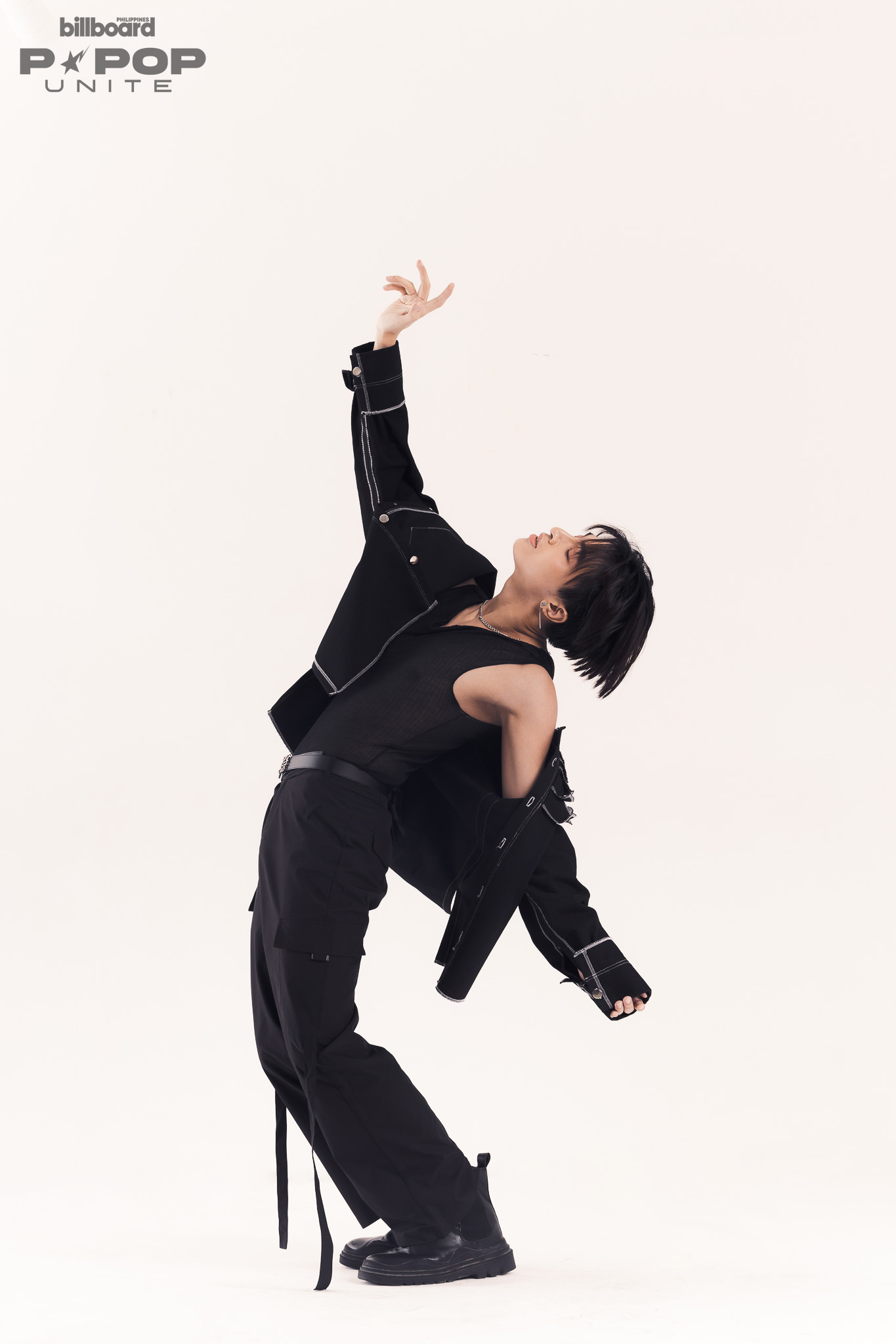
Photographed by Excel Panlaque of KLIQ INC.
Given that both of you try to incorporate your heritage into your music, what are your biggest inspirations when it comes to representing Filipino identity in your music?
Jao: Our biggest inspirations are [of course] our fans, mga Magiliw, and the Filipino people. One moment where I was proud of our heritage during my career was when we released a music video of our song, “Dagundong”. It is about the POV of our ancestors who fought bravely against colonizers from the time of Lapu Lapu to the american occupation period. It tells a lot about the courage of the Filipino people and I think it is just empowering, plus it makes me proud to be a Filipino.
Can any of you describe a moment when you felt particularly proud of your Filipino heritage during your career?
Franz: If I were to select the moment of greatest pride in wherein we incorporated Filipino heritage into our music, it would undoubtedly be with our song, “SSP (Saksak Sa Puso).” Our supporters and listeners have expressed considerable appreciation for our inclusion of phrases from traditional Filipino culture in the song, and I am eagerly looking forward to creating more of such art in the future.
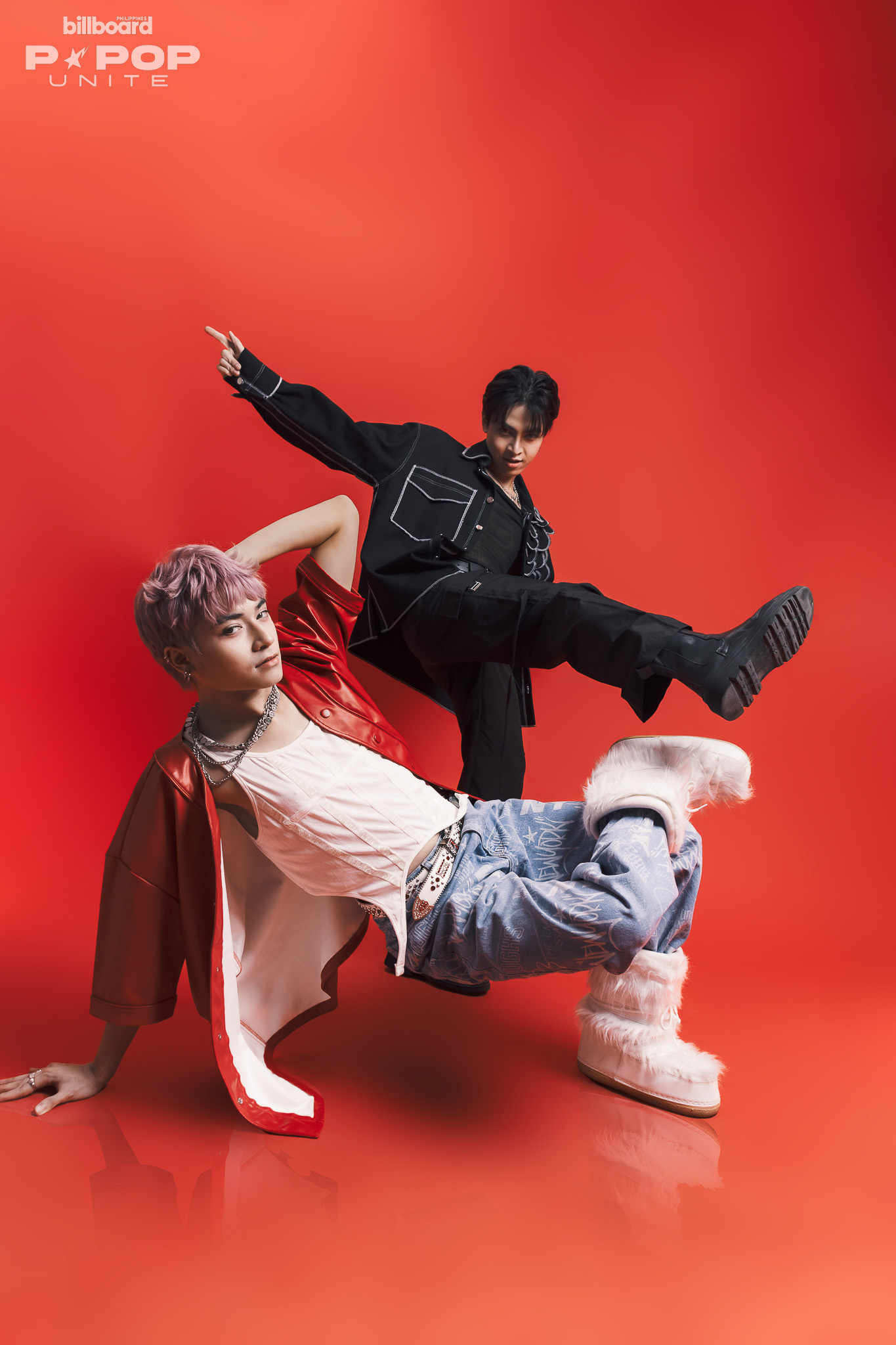
Photographed by Excel Panlaque of KLIQ INC.
What challenges have you faced in trying to blend contemporary pop music with traditional Filipino elements? Do these allow you to address and overcome misconceptions or stereotypes about Filipino culture through your music?
Jao: A major challenge in trying to fuse modern music with traditional Filipino elements is, ‘How can we make it sound very good so people can appreciate our sound more?’ With the lack of many references and trends, doing it may prove to be difficult at first –– but it’s something that we make the effort to do given that we are finally starting to find our sound, and we’re never gonna stop.
Franz: Blending contemporary and traditional Filipino elements is challenging and requires careful consideration of how these elements are utilized, but we approach the incorporation of traditional culture with great care to avoid any misrepresentation, particularly because our cultural heritage is at stake. Drawing inspiration from traditional Filipino culture not only enriches our work but also dispels the notion that P-pop is merely a direct imitation of other nations’ pop cultures.
How do you think your representation of Filipino culture resonates with your fans, both locally and internationally? And how do you balance staying true to your cultural roots while innovating and appealing to a modern, global audience?
Franz: Our supporters [our VIXIES] are highly vocal and take great pride in our music, particularly when we draw inspiration from traditional Filipino culture. I see how frequently they express how represented they feel and all the comments about it online, which makes them resonate with our songs even more. Additionally, our international fans and supporters are beginning to get an understanding of Filipino culture through these additions, which has sparked their interest in Filipino music and heritage.
Jao: For the longest time, the closest thing that our Filipino fans had to Asian representation was Korean representation, whom we look up to. But I believe showcasing the Filipino culture creates a more specific, and much more relatable representation of what we can offer in terms of music plus we get to hear our own language. i’ve always believed that Filipinos are adaptive, Filipinos are known for being resilient, and with that we know how to make the best of different times. Today our Maria Claras are seen in the workforce, can lead in terms of politics, and can dominate the global music industry such as our sisters from BINI. I think the balance comes naturally to us Filipinos, and I can’t wait for the world to see it.
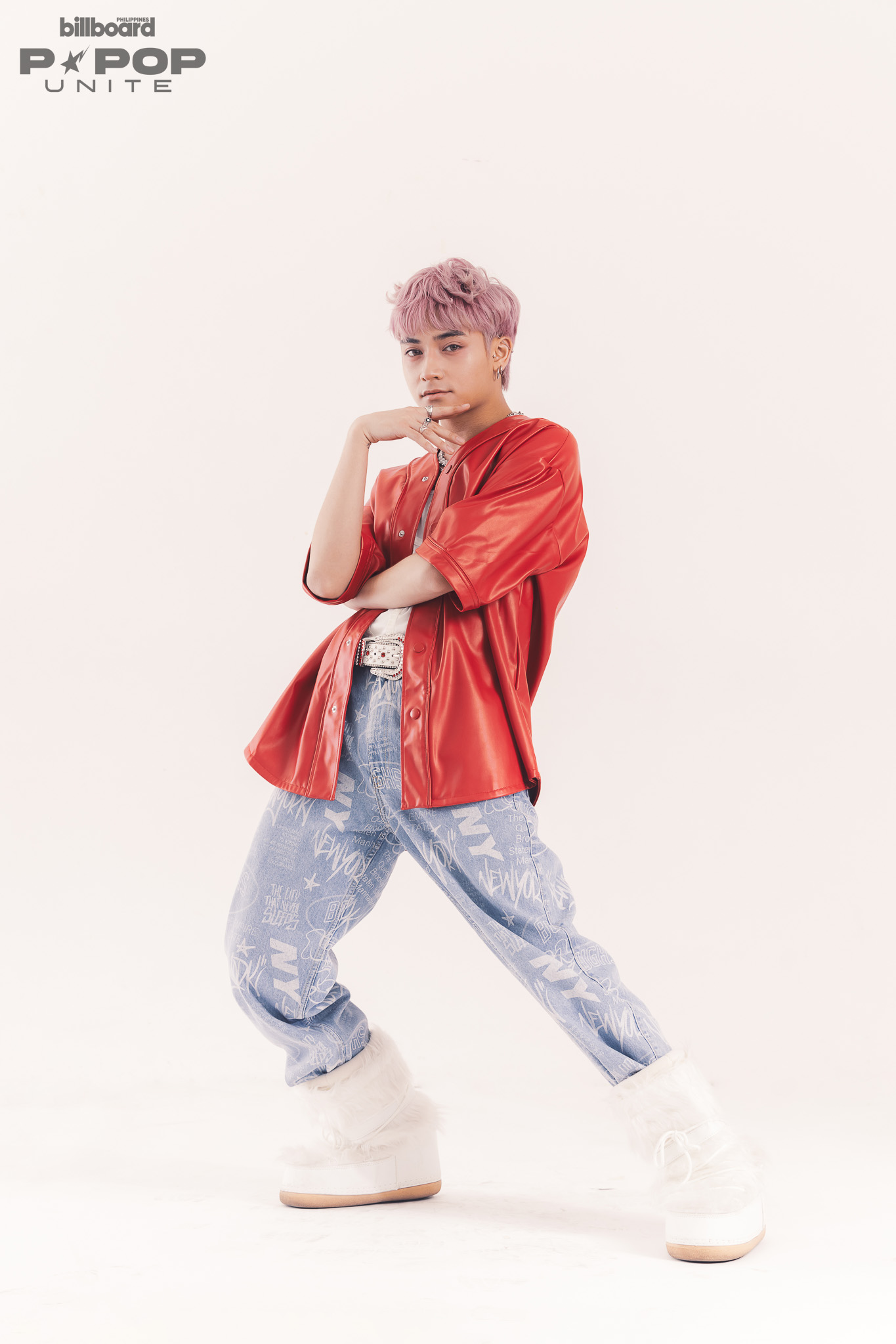
Photographed by Excel Panlaque of KLIQ INC.
Given how the global reception of Filipino music and culture continues to evolve, what role do you think P-Pop plays in this?
Jao: The Philippines has long been represented and labeled as a developing nation (third-world country) and that puts us in a position where sharing Filipino art equates to proving ourselves to the world a hundred times harder than it is for other countries. Through our music, I hope the world gets to see an entirely different perspective of Filipino culture. I hope the world sees how rich our culture is, how passionate we are in the arts, and how proud we are to call ourselves Filipinos.
What impact do you hope to have on the perception of Filipino culture through your music?
Franz: The Filipino music industry, particularly the P-pop sector, is now gaining recognition not only within the Philippines but also on the global stage. We aspire for P-pop to establish a unique identity –– one that demonstrates versatility across various genres –– while still being rooted in Filipino heritage. I think it’s the balance between innovation and cultural authenticity is what we hope will define the genre so that it can really resonate with audiences here and abroad as it preserves and promotes the richness of our cultural traditions. Through this approach, we aim to showcase the depth and breadth of Filipino music, contributing to a broader understanding and appreciation of our cultural identity in the world.
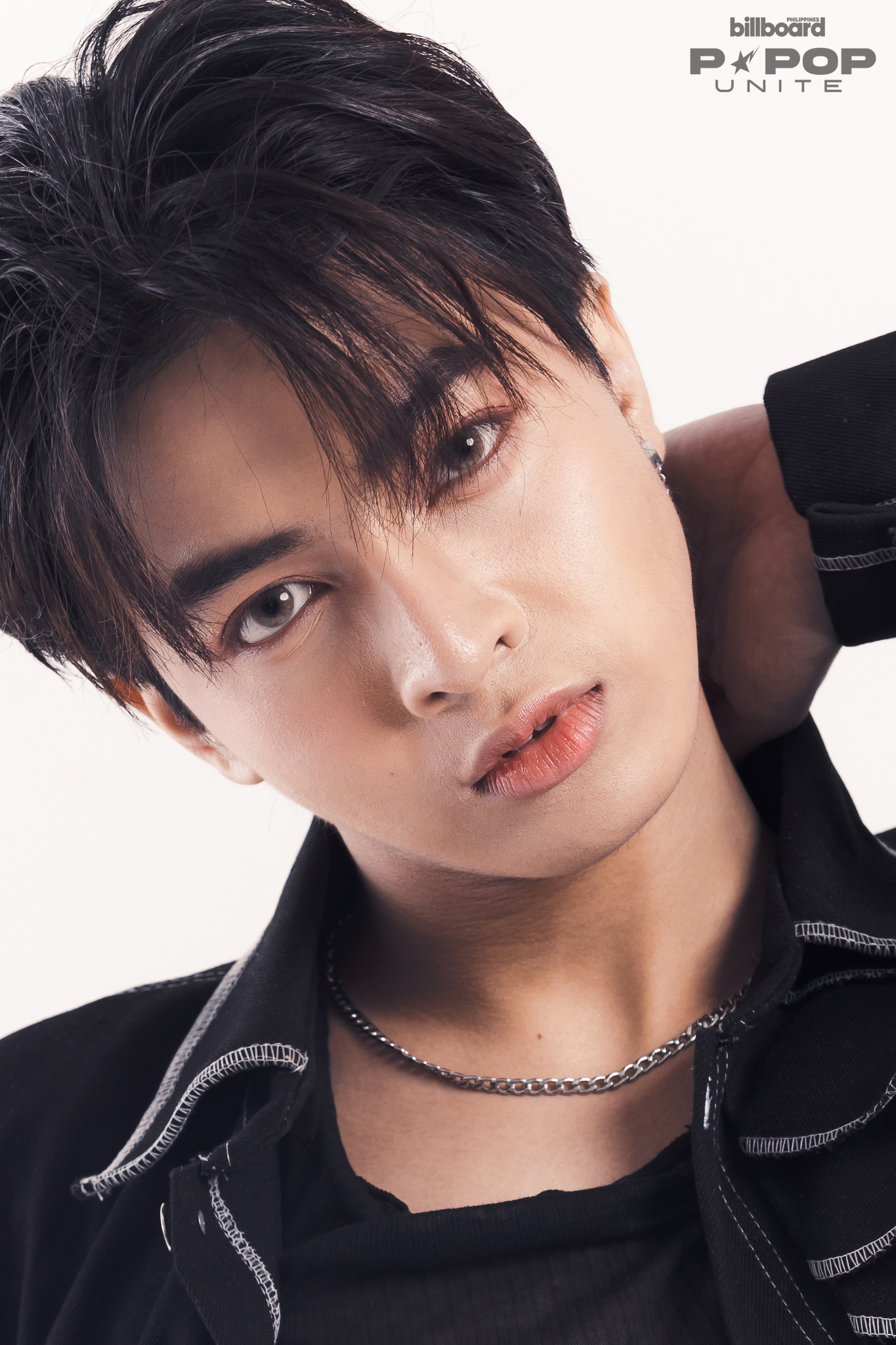
Photographed by Excel Panlaque of KLIQ INC.
Looking ahead, how do you plan to continue exploring and promoting Filipino identity in your future projects? Are there any Filipino artists, either traditional or contemporary, that you would like to collaborate with to further explore Filipino identity in your music?
Franz: In line with our current efforts, especially in our latest album 20:20, we are deeply committed to representing Filipino culture more prominently in our future projects. As VXON, one of our goals is to push the boundaries of creativity and innovation by weaving Filipino elements into our music and artistic concepts since we believe that the possibilities are limitless as our culture is incredibly rich and diverse.
By doing so, we hope to contribute to the ongoing evolution of OPM, to make sure that it remains versatile and expansive in its scope. Because our goal is not only to honor the legacy of Filipino music but to also help in shaping its future by embracing innovation –– while staying true to our cultural roots.
Jao: Lately I have been researching the Kulintang ensemble, and have read about the Dabakan of the Maguindanao ensemble. Like, I would love to add more of the Filipino sounds that we haven’t tried yet to our works –– because one thing we pride ourselves in is that we will always keep exploring ways to promote Filipino culture. May it be traditional or contemporary types, there are many amazing artists out there, and we are absolutely down to collaborate with everyone.
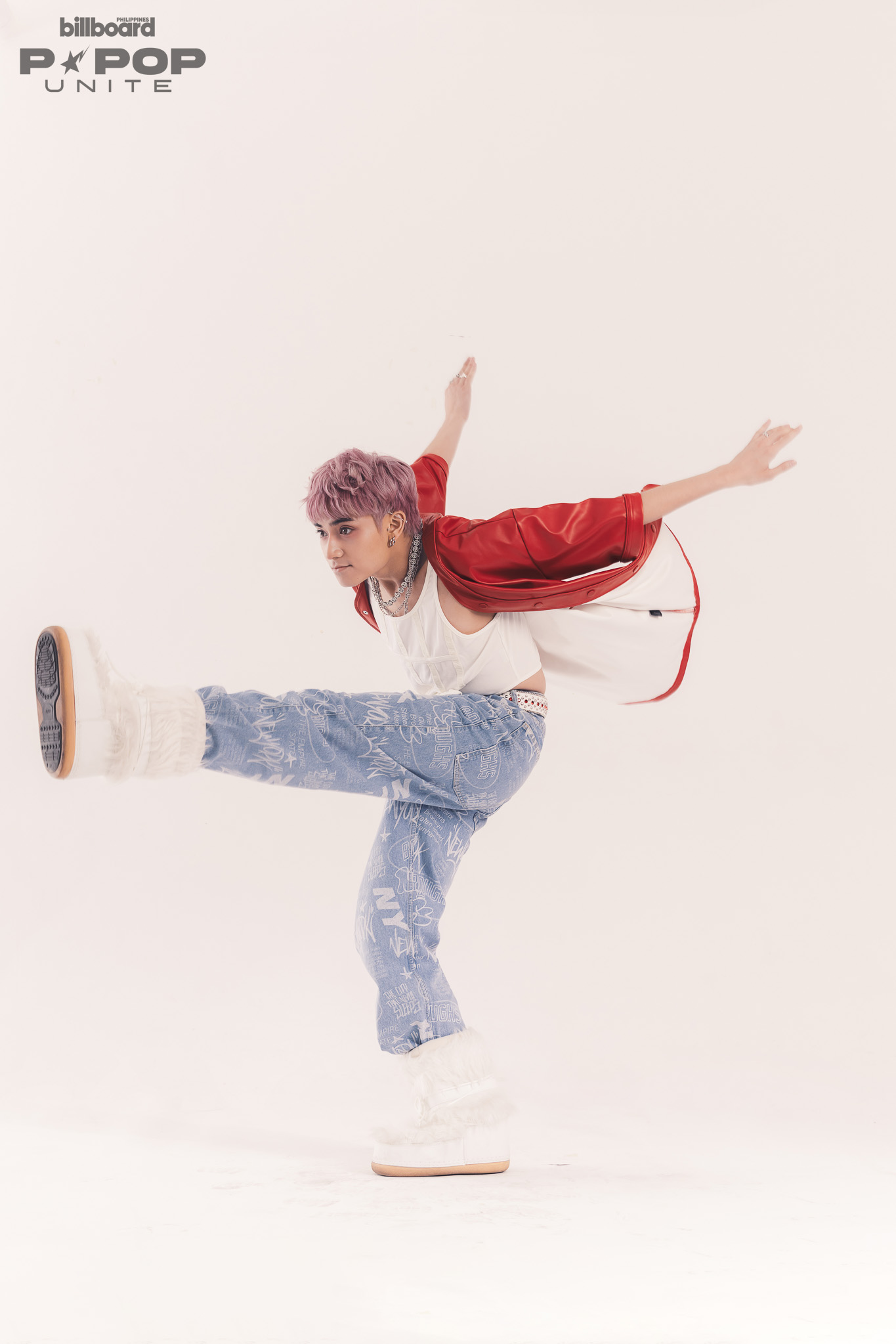
Photographed by Excel Panlaque of KLIQ INC.
What message do you want to send to the international audience about Filipino identity and culture through your work?
Jao: The message that we want to send to our international audience is actually a reflection of the message that we want to send to our Filipino audience. We have been great consumers of foreign arts, and our purpose is to create representation for the Filipino culture to be remembered and celebrated. We want the world to know that we are equally as talented and passionate –– and we are working very hard for that message to be delivered across the world.
Franz: I guess I would say that the beauty of Filipino culture lies in its intricate blend of creativity, authenticity, and emotional depth. Our culture not only captivates our audience with its vibrancy but also resonates deeply with its vulnerability and sincerity.
We really hope that more people, both within here and around the world, will come to appreciate and connect with OPM and P-pop in the years to come. By giving all of us a chance, I guess I’m sure that listeners will learn more about the hidden gems that say a lot about the Filipino Experience.
Through our music, as well as the music of other P-pop artists, the mission is all about being committed to delivering an emotional and narrative richness that is both deeply rooted and reflective of our heritage. Because of what all of us are able to do with the P-pop genre, our hope is that this journey will not only entertain our listeners and fans –– but to also foster a greater understanding and appreciation of the beautiful complexities of Filipino culture.
This interview was edited for brevity and clarity.
Photographed by Excel Panlaque of KLIQ INC. Creative direction by Nicole Almero.
